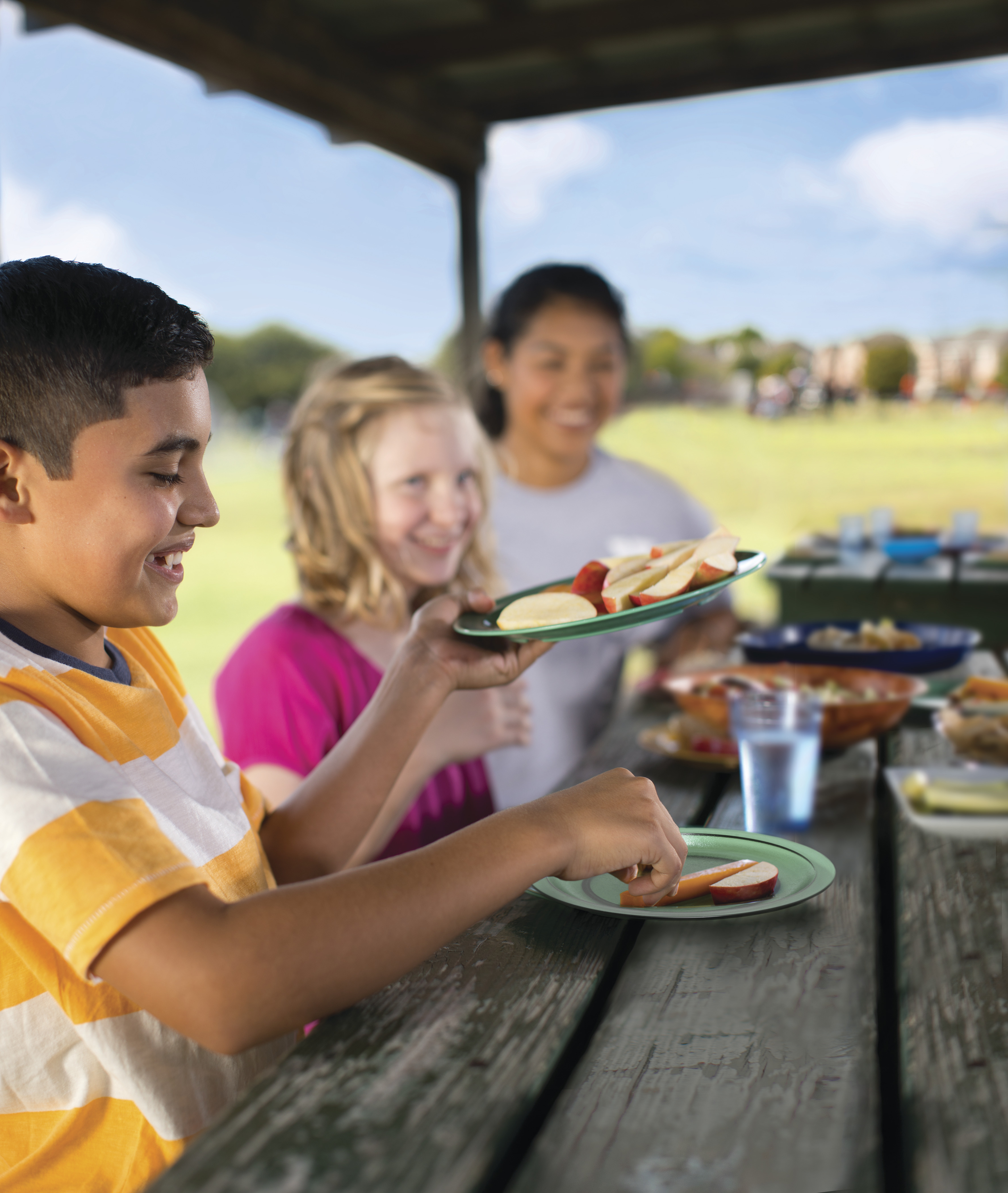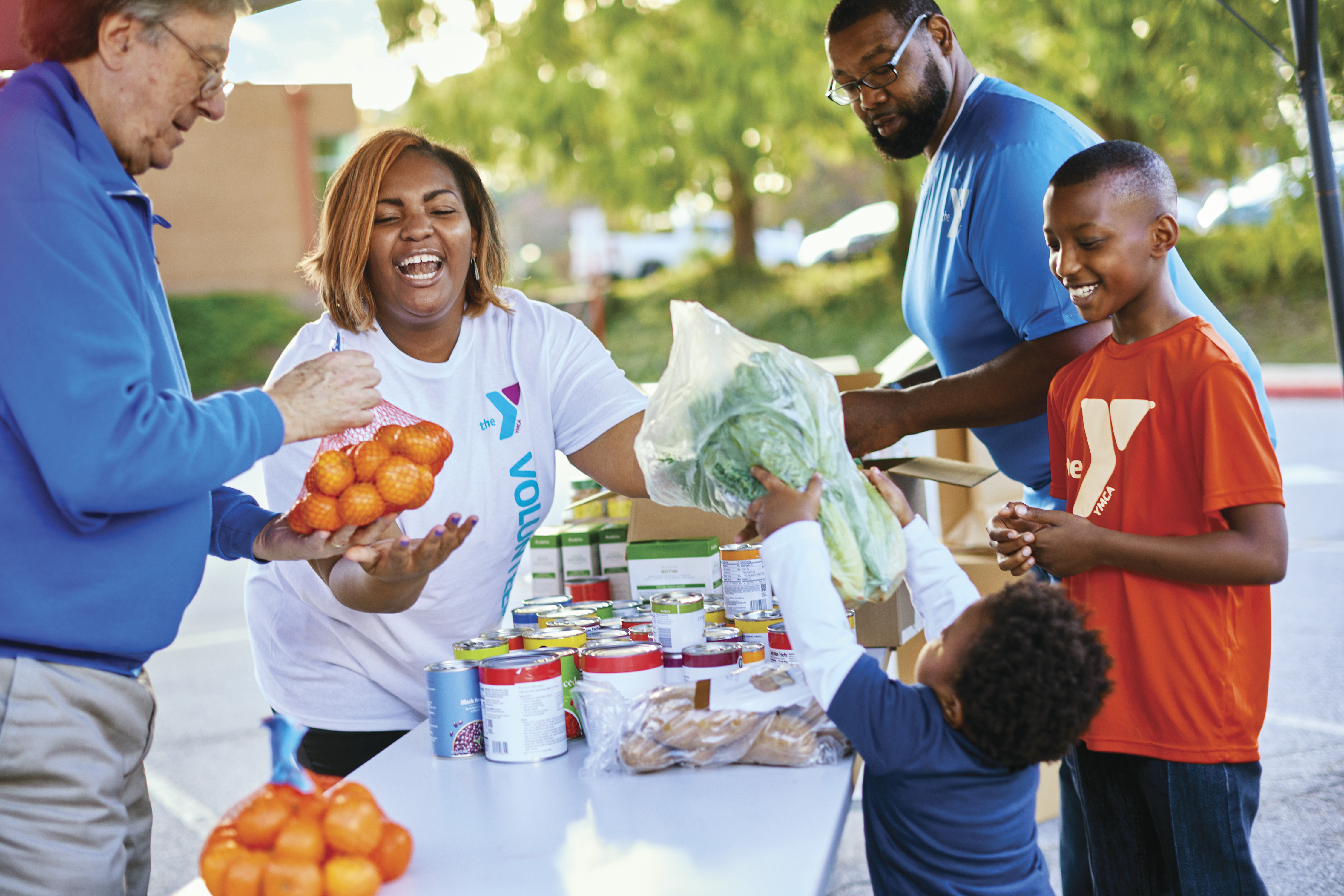Header 1
Food insecurity received a lot of attention during the pandemic—understood as an economic consequence of COVID. Media reports commonly featured long lines of cars at food sites and masked volunteers depositing bags of groceries into open trunks.
As those news images faded with the pandemic, so did the daily reminders that hunger is a critical issue that must be prioritized in the U.S. today. But the reality is that, like so many social issues, food insecurity is a long-existing problem in our country that was exacerbated by the pandemic.
Access to healthy food is an ongoing issue for many families, with 24 percent of caregivers reporting their households are food insecure. The issue can be especially challenging during the summer when families lose access to school meals and face added childcare expenses. The extra stress expands the list of worries for caregivers and interferes with the joys of summer for kids, adding a mental toll to the obvious physical toll of hunger.
At the local, state and federal levels, we must continue to push for program improvements and greater flexibility to support families and help more kids have healthy summers.
Header 1
A Focus on Food at the Y
As an organization committed to nurturing the potential of every child and teen, the Y understands that all kids need access to nutritious meals to learn, grow and thrive. YMCAs have been mobilizing people, partners and communities to address child hunger for decades, first through summer food programs and more recently by growing afterschool and other anti-hunger programs that operate year-round.
 Last year, YMCAs ran 6,000 meal sites and served 60 million meals and snacks to more than 3 million kids, primarily through the U.S. Department of Agriculture’s afterschool and summer child nutrition programs. Every day, Y staff and volunteers witness the need for these programs and the positive impact that adequate access to food has on families. We get to hear the heartfelt ‘thank yous’ from relieved parents and see the wide smiles of happy kids.
Last year, YMCAs ran 6,000 meal sites and served 60 million meals and snacks to more than 3 million kids, primarily through the U.S. Department of Agriculture’s afterschool and summer child nutrition programs. Every day, Y staff and volunteers witness the need for these programs and the positive impact that adequate access to food has on families. We get to hear the heartfelt ‘thank yous’ from relieved parents and see the wide smiles of happy kids.
Within the anti-hunger food chain made up of farmers, funders, nonprofits, government agencies, schools and more, the Y is fortunate to be the point of contact with families and kids. Our closeness to communities allows us to see firsthand the pervasiveness of food insecurity, as well as the barriers that can make food access more challenging.
Transportation is a common barrier for many communities—urban, suburban and rural—and YMCAs get creative with closing this gap. Many Ys bring food programs to the community by setting up distribution sites in parks or libraries. Still others bring innovation to their own modes of transportation by converting school buses into “diner” buses equipped with seats and tables. One YMCA has expanded its program through community partnerships to include not only transportation, but also a farm that produces food and offers educational opportunities for children and families.
Advocating for Anti-Hunger Efforts
Though the pandemic continues to fade, food insecurity still demands our attention. Recent inflation and the end of COVID-era increases to Supplemental Nutrition Assistance Program (SNAP) benefits have added more financial stress for many families.

During the pandemic, waivers allowed providers like the Y more flexibility to feed kids and families. Now, we are advocating for permanent changes that would allow us to apply what we learned and feed more children moving forward. Our efforts are paying off: Congress recently initiated a rural grab-and-go program that some Ys operate during the summer.
This is a step in the right direction, but more is needed. At the local, state and federal levels, we must continue to push for program improvements and greater flexibility to support families and help more kids have healthy summers.
We’ve already seen the incredible impact that food program legislation can have. It’s more important than ever for our partners in Congress to champion these laws and the children they support. The Child Nutrition Act, for example, is vital to the work we do, but it hasn’t been updated in more than 12 years. As front-line providers, YMCAs know that necessary improvements cannot wait any longer. You can help by encouraging your lawmakers to prioritize this legislation through our Child Nutrition Act action alert.
You also can learn more about food programs at the Y and even donate to provide healthy meals in your area. Just as we did before the pandemic, the Y will continue to focus on and strengthen our anti-hunger efforts to ensure every child has the opportunity to have a happy, healthy summer.





